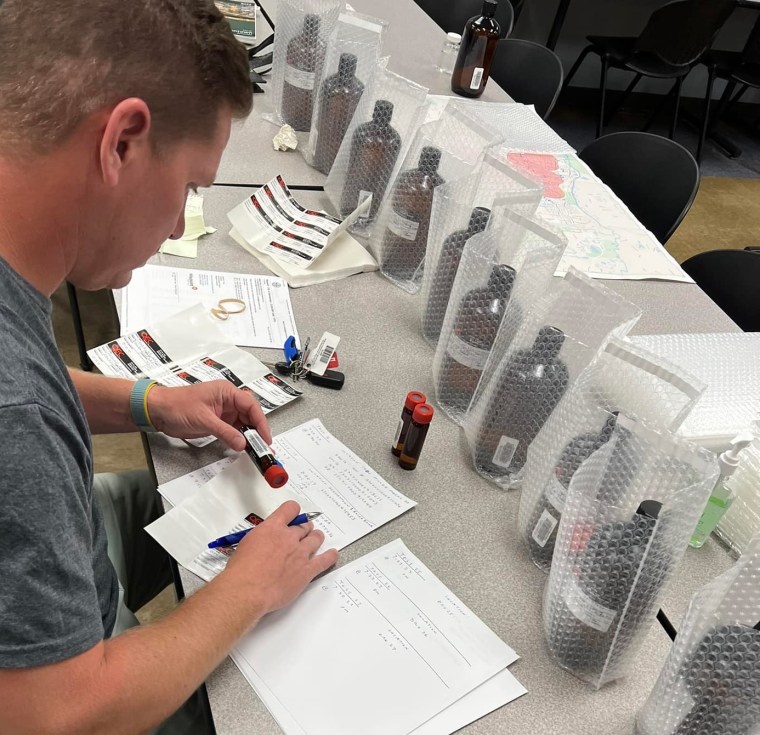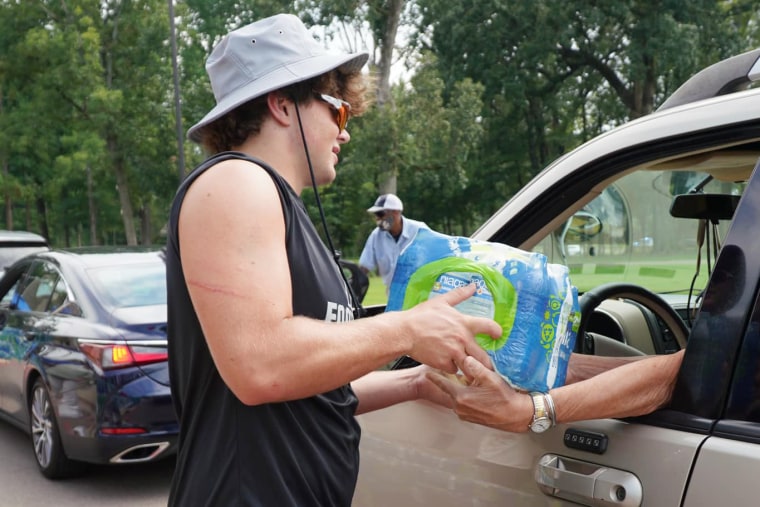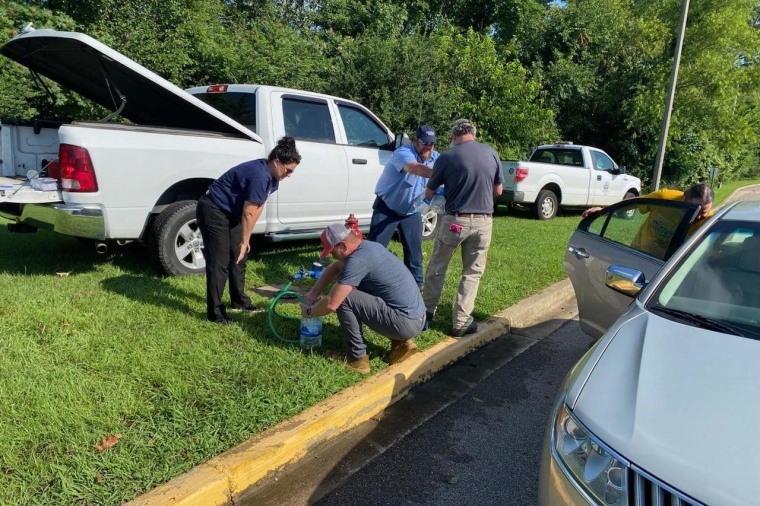For a week, residents of Germantown, Tennessee, could not drink or use their tap water, following a diesel spill into an underground reservoir.
The residents were informed via text message on July 20 that their water was not safe for any purpose, except flushing toilets.
“I was freaking out,” said Kyle Miller, who lives in Germantown with his wife and two kids, ages 2 and 4.
Finally, on Thursday, the city announced that the water was safe to drink again after independent tests showed the reservoir was clear of the diesel fuel, which had spilled from a backup generator used to power a water treatment plant during recent storms.
But five residents, including Miller, told NBC News that as of Friday they could still smell a gasoline-like odor from their faucets, prompting fears that the water may continue to pose a health risk.
Water contaminated with diesel fuel can lead to upset stomach, vomiting, diarrhea and liver or kidney damage, the Shelby County Health Department warned on Monday. Diesel fuel also contains benzene, a human carcinogen.
Christopher Mantia, who grew up in Germantown and moved back seven years ago, said his water still smells like turpentine or WD-40 lubricant.
“If I did not smell the odor, I think we’d be comfortable enough to shower and wash dishes and laundry,” Mantia said. “My wife and I still don’t think that we’ll drink it until somebody can give us some definitive information.”
Miller, too, said a gasoline smell lingers in his home even though he followed the directions from the city about how to flush his water line. As instructed, he ran cold water through the faucets, followed by hot, then repeated the process.
“Initially, the whole house smelled when I was flushing the water,” Miller said, adding “now, you fill up a cup and if you stick your nose to it, you can smell it.”

Phillip Scheuerman, a professor of environmental health at East Tennessee State University, said residents’ descriptions of the smell indicate they might still have some diesel in their water lines, though it’s hard to know without additional testing.
“I would err on the side of caution and use bottled water and ask the city to come take a measurement,” Scheuerman said.
But the city does not plan to test individual homes, according to Stacey Crockett, its chief communications officer.
Crockett said the city is instead collecting additional water samples in areas where at least three households have reported persistent odors. She estimated that 1% to 2% of the community’s 15,000 homes — 150 to 300 — were still reporting odors as of noon on Friday.
“These reports are in concentrated areas and the city is currently executing additional main line flushing at these locations, which are predominantly where main lines dead end, such as in coves and courts,” Crockett said.
The Tennessee Department of Environment and Conservation — which approved the decision to allow residents to resume drinking their tap water — said Friday that it was “aware some Germantown customers continue to detect odors,” and that those people should contact the city for additional instruction.
“If residents still detect an odor after multiple rounds of flushing each location in their home, they should revert to using water only to flush toilets until the odor is gone,” Crockett said.

Geoffrey Carter said the odor in his home has gotten worse since Thursday.
“I ran my water the majority of the day yesterday, and then I woke up again today and began doing another flush, and the water coming out of all of my taps still smells. There’s no other way to put it — it smells like it is half WD-40,” he said.
Julia East, the director of communications for a local church, said she got a headache during the flushing process. She has been driving 20 minutes to a family friend’s house every night to shower and bathe her baby until she can be confident that the water is safe, she said.
“We’re kind of living out of bags and had to pack up all of our stuff for an indefinite amount of time,” East said.
The diesel spill is a reminder of the possible ripple effects and secondary risks that extreme weather can bring as climate change intensifies. A cluster of storms on July 18 downed some power lines in the Germantown area, rendering certain roads impassable. Another set of storms earlier in the month brought flash floods and high winds that felled trees, causing power outages.
Hence the need for backup power sources: City Administrator Jason Huisman said Wednesday that the generator “has been in operation quite a bit lately due to recent power outages.” The diesel overflowed during the refueling process, he said.

Scheuerman said the risk to people’s health is likely minimal now that tests stopped detecting diesel, and given that the spill was limited to 50 to 150 gallons, as the city reported. Lingering scents could also be disinfection byproducts or an additive to reduce the amount of the sediment in the water, he said.
The Shelby County Health Department said Friday that “anyone experiencing symptoms related to water usage should contact their primary care provider or urgent care center.”
Miller said he’s not sure he’ll ever feel confident in the safety of his tap water again, especially for his young children.
“I don’t want them drinking water that could potentially give them cancer,” he said.
“We invested a lot to live here and now, after this whole debacle, me and my wife are planning on leaving,” Miller added. “You can’t live in a place where you don’t trust its drinking water.”
